SARE Outreach publications highlight SARE-funded research results.
Showing 1-10 of 136 results
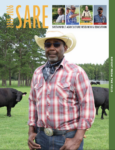
2025–2026 Report from the Field
In Recognition of Farmers and Ranchers SARE has been around for nearly 40 years, and the impacts that our grant and outreach programs have had on the sustainability of U.S. agriculture are because of one simple thing: Farmers and ranchers are at the center of everything we do. SARE is afunding sourcefor producers.It’s designed forproducers, […]
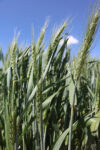
Enterprise Budgets for Diversified Farms
Farming is subject to many variables, from forces you can’t control, such as weather and markets, to your decisions around crops and cropping practices. The key to profitability and smart decision-making is knowing your costs, so you can allocate your limited assets to their best uses. These assets include your land, labor and capital. As […]
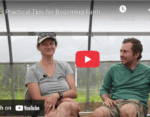
Practical Tips for Beginning Farmers
Based on their own experiences when starting out, farmers from across the country share advice about common challenges facing beginning farmers in today's agriculture. Paulding Dairy, Paulding, Ohio Dairy farmer Gretl Schlatter is joined by Sarah Noggle from Paulding County Extension in a series of discussions around business planning, the challenges of multigenerational farming and […]
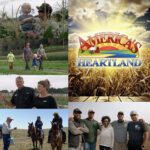
Farming Strategies for Adapting to Extreme Weather
SARE partnered with PBS KVIE to produce an episode of RFD-TV's America's Heartland that highlights how farmers and ranchers across the United States are using sustainable and regenerative practices to adapt to increasingly challenging and unpredictable weather conditions. Adapting to Flooding and Drought on Hurricane Flats Farm in South Royalton, Vermont Ashley Loehr and Antoine […]
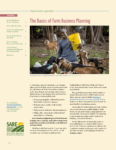
The Basics of Farm Business Planning
Sustainable farming and ranching means taking care of the land, the environment, people and the community, while the farm business makes a profit. Many farmers and ranchers choose sustainable farming and ranching as a lifestyle that reflects their values. Common goals include: Farm business planning is critical because it helps you to identify and achieve […]
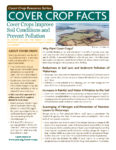
Ecosystem Services from Cover Crops
The Ecosystem Services from Cover Crops resources found on this page include a series of fact sheets, three infographics and one PowerPoint slide set. Together, these resources address the role of cover crops in nutrient management, erosion, infiltration, soil organic matter, supporting wildlife and beneficial insects, and carbon sequestration. They are available for use by educators, […]

Cover Crop Image Library
Images, Illustrations and Presentations This page includes free resources educators and farmers can use in outreach and educational activities related to cover crops. Available resources include a database of cover crop images, ready-made PowerPoint presentations on cover crop topics, and soil health illustrations. Cover Crop Image Library The SARE Cover Crop Image Library is hosted […]
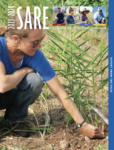
2023–2024 Report from the Field
SARE grants havehelped our viabilityas a business anddemonstrated thatsmall businessescan make a positiveimpact on theenvironment when wedevelop relationshipswith each other forthe benefit of all. Jeanine SeabrookGlass Rooster Cannery Letter from the Director I have always appreciated the value of long-term research as well as the long-term impact of both applied and basic research. The core […]
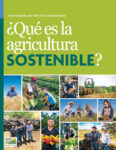
¿Qué es la Agricultura Sostenible?
Una forma sencilla de pensar en la agricultura sostenible es que implica producir suficientes alimentos y fibra para satisfacer las necesidades actuales sin comprometer la capacidad de las generaciones futuras para hacer lo mismo. Los agricultores y ganaderos que valoran la sostenibilidad adoptan tres objetivos comunes mientras llevando a cabo operaciones productivas: Para lograr estos […]
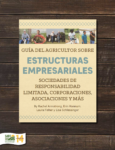
Guía del Agricultorn Sobre Estructuras Empresariales
Establecer y mantener la correcta estructura empresarial para la operación de su granja sienta las bases para un negocio agrícola estable y resiliente. La formación de una estructura empresarial puede ayudar a i) gestionar el riesgo mediante la protección de los activos de las personas propietarias ante las responsabilidades de la empresa; ii) promover las […]